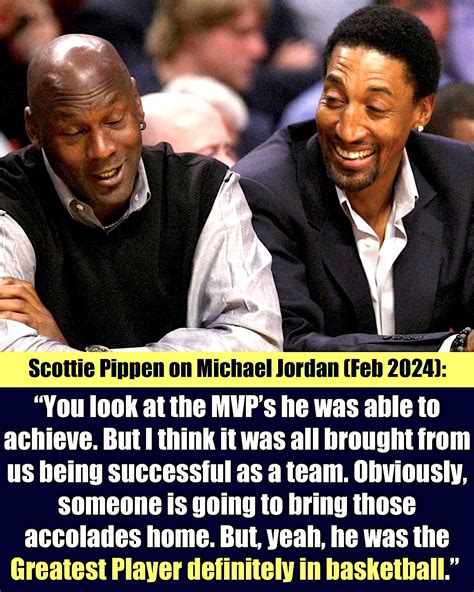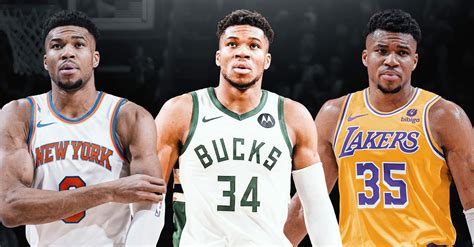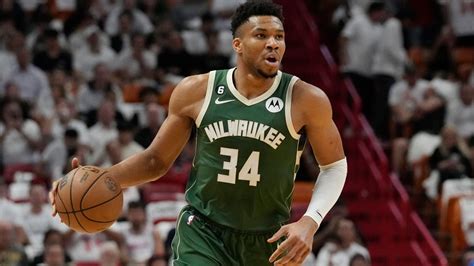
Scottie Pippen reaffirmed his belief that “The Bulls in the 90s would have won against LeBron and them” is the “greatest line in basketball,” standing by his controversial statement made years prior about a hypothetical matchup between his Chicago Bulls and LeBron James’ Miami Heat.
Scottie Pippen hasn’t backed down from his claim that the 1990s Chicago Bulls, featuring himself and Michael Jordan, would have defeated LeBron James’ Miami Heat teams. During an interview on Thuzio, Pippen reiterated his stance, calling his original statement “the greatest line in basketball.” The hypothetical matchup continues to spark debate among basketball fans and analysts.
Pippen’s initial assertion came several years ago, fueling countless discussions about which era reigned supreme in the NBA. He specifically targeted the Heat teams featuring James, Dwyane Wade, and Chris Bosh, arguing that the Bulls’ superior teamwork and defensive prowess would have given them the edge.
“I said, ‘The Bulls in the 90s would have won against LeBron and them.’ I didn’t mean no disrespect. I feel like that’s the greatest line in basketball,” Pippen stated in the recent interview, doubling down on his original sentiment.
The statement, laden with confidence and a hint of provocation, has resonated within the basketball community, sparking passionate arguments and counterarguments. It’s a sentiment deeply rooted in Pippen’s pride in his Bulls teams, which dominated the NBA landscape for much of the 1990s, securing six championships.
Pippen’s Bulls teams, led by Jordan and himself, established a dynasty characterized by their stifling defense, intricate offensive execution, and undeniable chemistry. They achieved two three-peat championships (1991-1993 and 1996-1998), solidifying their place in basketball history. Their dominance was built on a foundation of teamwork, defensive intensity, and the unparalleled scoring ability of Michael Jordan.
On the other hand, LeBron James’ Miami Heat, formed in 2010, represented a different era of basketball. Featuring James, Wade, and Bosh, the Heat were known for their explosive offense, athleticism, and star power. They reached the NBA Finals four consecutive times (2011-2014), winning two championships (2012 and 2013). Their style of play was characterized by high-octane offense and individual brilliance, particularly from James.
The hypothetical matchup between these two iconic teams raises several intriguing questions. Could the Bulls’ suffocating defense contain James, Wade, and Bosh? Could the Heat’s offensive firepower overcome the Bulls’ defensive intensity? Would Jordan’s scoring prowess prove too much for the Heat to handle?
One of the critical elements of the debate revolves around the contrasting styles of play. The Bulls emphasized teamwork, ball movement, and defensive discipline. Their offensive system, known as the “triangle offense,” relied on precise spacing and player movement to create scoring opportunities. Defensively, they were relentless, employing aggressive traps and rotations to disrupt opponents’ offenses.
In contrast, the Heat were built around individual brilliance and athleticism. James, Wade, and Bosh were all capable of dominating games with their scoring and playmaking abilities. Their offensive system was more free-flowing, allowing them to exploit mismatches and create opportunities in transition.
Another factor to consider is the evolution of the game. The NBA has undergone significant changes in recent decades, with rule changes and increased emphasis on offensive freedom. The Heat played in an era where spacing and three-point shooting were paramount, while the Bulls played in a more physical era characterized by tougher defense.
Pippen’s confidence in his Bulls teams stems from their proven track record of success and their ability to overcome adversity. He believes that their championship pedigree and their unwavering commitment to teamwork would have given them the edge against the Heat.
“We were a team that was built to win championships. We had a great coach, a great system, and a group of guys who were willing to sacrifice for each other,” Pippen has said on numerous occasions.
However, many argue that James’ Heat would have presented a unique challenge to the Bulls. James’ size, strength, and versatility would have made him a difficult matchup for any defender, including Pippen. Wade’s scoring ability and Bosh’s all-around game would have further stretched the Bulls’ defense.
The debate surrounding this hypothetical matchup is likely to continue for years to come. It’s a testament to the enduring legacy of both the Bulls and the Heat, and it reflects the passion and intensity that fuels basketball fandom. Pippen’s unwavering belief in his Bulls teams ensures that the discussion will remain a prominent topic among basketball enthusiasts.
The core of Pippen’s argument rests on the Bulls’ perceived superior defense and overall team cohesion, qualities he believes the Heat, despite their immense talent, couldn’t overcome. He highlights the Bulls’ consistent performance across multiple seasons, their ability to adapt to different opponents, and their unwavering commitment to a system that prioritized team success over individual accolades.
Critics of Pippen’s stance often point to the evolution of the game, arguing that the increased emphasis on spacing and three-point shooting in the modern NBA would favor the Heat. They contend that James’ playmaking ability and the Heat’s overall offensive firepower would be too much for the Bulls to handle. Furthermore, some argue that the Bulls’ reliance on the triangle offense, while effective in its time, would be less effective against the Heat’s defensive schemes.
The debate also touches upon the individual matchups. While Pippen was undoubtedly a great defender, slowing down James for an entire series would be a monumental task. Similarly, containing Wade and Bosh would require a collective effort from the Bulls’ defense. On the other hand, the Heat would face the challenge of guarding Jordan, who is widely regarded as the greatest scorer in NBA history.
Ultimately, the question of which team would win remains unanswered. It’s a hypothetical scenario that can only be debated and never definitively proven. However, Pippen’s continued insistence on his original statement serves as a reminder of the Bulls’ dominance in the 1990s and the enduring legacy of their championship teams. It also highlights the subjective nature of sports debates, where personal opinions and biases often play a significant role.
The argument also sparks a broader discussion about era comparisons in sports. Is it fair to compare teams from different eras, given the changes in rules, playing styles, and overall athleticism? Some argue that each era should be judged on its own merits, while others believe that it’s possible to compare teams across eras by adjusting for the differences in the game.
No matter the perspective, Pippen’s statement has undoubtedly fueled countless conversations and debates among basketball fans. It’s a statement that encapsulates the passion, pride, and unwavering loyalty that characterize sports fandom. And it’s a statement that is likely to continue to be debated for years to come.
The context of Pippen’s statement is also crucial. It’s not just about basketball; it’s about legacy, pride, and the desire to defend one’s accomplishments. Pippen, having played a significant role in the Bulls’ dynasty, naturally feels a strong connection to that era and a desire to see his team recognized as one of the greatest of all time. His statement can be seen as a way of preserving that legacy and asserting the Bulls’ dominance in the history of the NBA.
Furthermore, Pippen’s statement can be interpreted as a form of gamesmanship. By confidently asserting his belief in the Bulls, he is essentially challenging others to prove him wrong. He is inviting debate and discussion, knowing that it will keep the Bulls’ legacy alive and relevant.
The impact of Pippen’s statement extends beyond the basketball court. It has become a cultural reference point, used to spark conversations and debates about sports, competition, and the pursuit of greatness. It’s a reminder that sports are not just about statistics and scores; they are about emotions, rivalries, and the enduring human desire to be the best.
In conclusion, Scottie Pippen’s reaffirmation of his belief that the 1990s Chicago Bulls would defeat LeBron James’ Miami Heat teams underscores the enduring power of sports debates and the unwavering loyalty that athletes feel towards their teams. His statement, whether seen as arrogant or confident, has sparked countless conversations and debates among basketball fans, highlighting the passion, pride, and subjective nature of sports fandom. It serves as a reminder of the Bulls’ dominance in the 1990s and the enduring legacy of their championship teams, while also acknowledging the greatness of James and the Heat. The debate is unlikely to be resolved, but Pippen’s unwavering stance ensures that it will continue to be a prominent topic among basketball enthusiasts for years to come. It’s more than just a basketball argument; it’s a cultural phenomenon that reflects the enduring power of sports to captivate and inspire.
Further Elaboration on Key Aspects of the Article:
1. The Bulls’ Defensive Prowess:
The 1990s Bulls were renowned for their suffocating defense, orchestrated by coach Phil Jackson and executed flawlessly by players like Pippen, Jordan, and Dennis Rodman. Their defensive scheme involved aggressive double-teams, relentless pressure on the ball, and exceptional help-side defense. Pippen, in particular, was a defensive force, capable of guarding multiple positions and disrupting opponents’ offensive flow. Jordan, though known primarily for his scoring, was also an elite defender, known for his steals and ability to lock down opposing guards. Rodman’s rebounding and interior defense added another layer of toughness to the Bulls’ defensive presence.
The question is whether this defensive scheme would be effective against the Heat’s offensive firepower. James’ ability to drive to the basket and create opportunities for his teammates would pose a significant challenge. Wade’s slashing ability and Bosh’s versatility would further stretch the Bulls’ defense. However, the Bulls’ defensive discipline and their ability to anticipate opponents’ moves could potentially disrupt the Heat’s offensive rhythm.
2. The Heat’s Offensive Firepower:
The Miami Heat teams featuring James, Wade, and Bosh were known for their explosive offense and their ability to score in bunches. James, in particular, was a dominant force, capable of scoring, passing, and rebounding at an elite level. Wade’s scoring ability and athleticism made him a difficult matchup for any defender. Bosh’s ability to stretch the floor with his shooting added another dimension to the Heat’s offense.
The Heat’s offensive system was predicated on creating mismatches and exploiting opponents’ weaknesses. James’ ability to drive to the basket and draw defenders created opportunities for his teammates. Wade’s slashing ability forced opponents to double-team him, opening up space for other players. Bosh’s shooting ability forced opposing centers to guard him away from the basket, creating driving lanes for James and Wade.
The challenge for the Bulls would be to contain the Heat’s offensive firepower without sacrificing their defensive principles. Double-teaming James could potentially leave other players open, while allowing him to operate one-on-one could lead to easy baskets. The Bulls would need to find a balance between pressuring James and Wade and preventing the Heat from getting open looks from three-point range.
3. The Jordan Factor:
Michael Jordan is widely regarded as the greatest scorer in NBA history. His scoring ability, athleticism, and competitive spirit were unmatched. He was capable of taking over games and leading his team to victory.
The Heat would face the daunting task of guarding Jordan, who would likely be defended by James at times. While James is an excellent defender, Jordan’s scoring prowess would present a unique challenge. The Heat would need to find a way to limit Jordan’s scoring opportunities and prevent him from taking over the game.
The Bulls’ success would depend on Jordan’s ability to perform at his peak level. If he could consistently score and create opportunities for his teammates, the Bulls would have a significant advantage.
4. The Coaching Factor:
Phil Jackson, the coach of the Bulls, was known for his ability to manage egos and create a cohesive team environment. He implemented the triangle offense, which emphasized ball movement and player spacing. Erik Spoelstra, the coach of the Heat, was known for his ability to adapt his strategies to different opponents and create a winning culture. Both coaches were highly respected and had a proven track record of success.
The coaching matchup between Jackson and Spoelstra would be a fascinating one. Jackson’s experience and his ability to manage superstars could potentially give the Bulls an edge. Spoelstra’s adaptability and his ability to make adjustments during games could potentially help the Heat overcome the Bulls’ defensive intensity.
5. The Intangibles:
Beyond the Xs and Os, there are several intangible factors that could influence the outcome of the hypothetical matchup. Team chemistry, mental toughness, and the ability to perform under pressure are all crucial elements of success.
The Bulls had a proven track record of success, having won six championships in eight years. Their experience in high-pressure situations could give them an advantage over the Heat. The Heat, however, had their own share of experience, having reached the NBA Finals four consecutive times.
Ultimately, the outcome of the hypothetical matchup would depend on a combination of factors, including skill, strategy, and intangible qualities. It’s a debate that is likely to continue for years to come, with no definitive answer.
Expanded Context and Background Information:
The context surrounding Pippen’s remarks is crucial for understanding the continued debate. These statements are not made in a vacuum. They arise from a deep-seated pride in the Chicago Bulls dynasty of the 1990s and a desire to maintain its place in basketball lore. Pippen, having been an integral part of that dynasty, carries a vested interest in upholding its legacy.
The 1990s Bulls were more than just a collection of talented individuals; they were a well-oiled machine, a team that played with unparalleled chemistry and defensive intensity. Under the guidance of Phil Jackson, they mastered the triangle offense, a system that emphasized ball movement, player spacing, and decision-making based on reads and reactions. This system, while complex, allowed the Bulls to consistently generate high-quality scoring opportunities.
Defensively, the Bulls were a force to be reckoned with. They employed aggressive double-teams, pressured the ball relentlessly, and rotated with precision. Pippen, with his length, athleticism, and defensive instincts, was the linchpin of their defensive scheme. He could guard multiple positions and disrupt opponents’ offensive flow with his steals and deflections. Jordan, often overshadowed by his scoring prowess, was also an elite defender, capable of locking down opposing guards and making crucial defensive plays. And Rodman, with his rebounding prowess and interior defense, added another layer of toughness to the Bulls’ defensive presence.
In contrast, the Miami Heat of the early 2010s represented a different era of basketball, one characterized by individual brilliance and offensive firepower. James, Wade, and Bosh were all capable of taking over games with their scoring and playmaking abilities. Their offensive system, while effective, relied more on individual initiative and less on intricate team play.
Defensively, the Heat were not as dominant as the Bulls. While they had talented defenders like James and Wade, their defensive scheme was not as sophisticated or as consistently executed as the Bulls’ defense. This is not to say that the Heat were a poor defensive team, but they were not on the same level as the Bulls in terms of defensive consistency and intensity.
The debate over which team would win in a hypothetical matchup often centers on the clash of styles. The Bulls’ emphasis on teamwork and defensive intensity versus the Heat’s reliance on individual brilliance and offensive firepower. It’s a classic matchup of contrasting philosophies, and the outcome would likely depend on which team could impose its will on the other.
Another factor to consider is the evolution of the game. The NBA has undergone significant changes in recent decades, with rule changes and increased emphasis on offensive freedom. The Heat played in an era where spacing and three-point shooting were paramount, while the Bulls played in a more physical era characterized by tougher defense. These differences in playing styles could have a significant impact on the outcome of the hypothetical matchup.
For example, the Heat’s ability to spread the floor with three-point shooters could force the Bulls to adjust their defensive scheme, potentially opening up driving lanes for James and Wade. Conversely, the Bulls’ physical defense could disrupt the Heat’s offensive rhythm and force them into difficult shots.
Ultimately, the question of which team would win is a matter of opinion. There is no definitive answer, and the debate is likely to continue for years to come. However, Pippen’s continued insistence on his original statement serves as a reminder of the Bulls’ dominance in the 1990s and the enduring legacy of their championship teams. It also highlights the subjective nature of sports debates, where personal opinions and biases often play a significant role.
The Enduring Appeal of Era Comparisons:
The fascination with comparing teams and players across different eras in sports is a testament to the human desire to rank and evaluate greatness. It’s a way of contextualizing achievements and understanding the evolution of the game. However, era comparisons are inherently problematic, as they often involve comparing apples and oranges.
The rules, playing styles, and overall athleticism of different eras can vary significantly, making it difficult to draw definitive conclusions. For example, the NBA of the 1990s was a more physical league, with stricter rules on hand-checking and less emphasis on three-point shooting. The NBA of the 2010s was a more perimeter-oriented league, with looser rules on hand-checking and greater emphasis on three-point shooting.
These differences in playing styles can make it difficult to compare players and teams across eras. A player who thrived in the physical environment of the 1990s might struggle in the more open environment of the 2010s, and vice versa. Similarly, a team that was dominant in one era might not be as successful in another era.
Despite these challenges, era comparisons remain a popular pastime among sports fans. They provide a way to spark debate, celebrate past achievements, and appreciate the evolution of the game. However, it’s important to approach era comparisons with a degree of humility and acknowledge the limitations of such comparisons.
FAQ Section:
1. Why does Scottie Pippen believe the 1990s Bulls would beat LeBron’s Heat?
Pippen’s belief stems from his confidence in the Bulls’ superior teamwork, defensive prowess, and championship pedigree. He argues that the Bulls’ consistent performance, ability to adapt, and unwavering commitment to team success would give them the edge over the Heat, despite their individual talent.
2. What are the main arguments against Pippen’s claim?
Critics of Pippen’s stance often point to the evolution of the game, arguing that the increased emphasis on spacing and three-point shooting in the modern NBA would favor the Heat. They contend that James’ playmaking ability and the Heat’s overall offensive firepower would be too much for the Bulls to handle. Also, that the Bulls’ triangle offense, while effective in its time, would be less effective against the Heat’s defensive schemes.
3. What role did the triangle offense play in the Bulls’ success?
The triangle offense, implemented by coach Phil Jackson, emphasized ball movement, player spacing, and decision-making based on reads and reactions. This system allowed the Bulls to consistently generate high-quality scoring opportunities and made it difficult for opponents to focus solely on Michael Jordan.
4. How would the Bulls’ defense try to contain LeBron James?
The Bulls would likely employ a combination of strategies to contain James, including using Pippen as the primary defender, double-teaming him at times, and trying to force him into difficult shots. However, James’ size, strength, and versatility would make him a difficult matchup for any defender.
5. What is the significance of Pippen continuing to stand by his statement?
Pippen’s unwavering belief in his Bulls teams underscores the enduring power of sports debates and the unwavering loyalty that athletes feel towards their teams. His statement sparks conversations among basketball fans, highlighting the passion, pride, and subjective nature of sports fandom. It serves as a reminder of the Bulls’ dominance in the 1990s and the enduring legacy of their championship teams.









